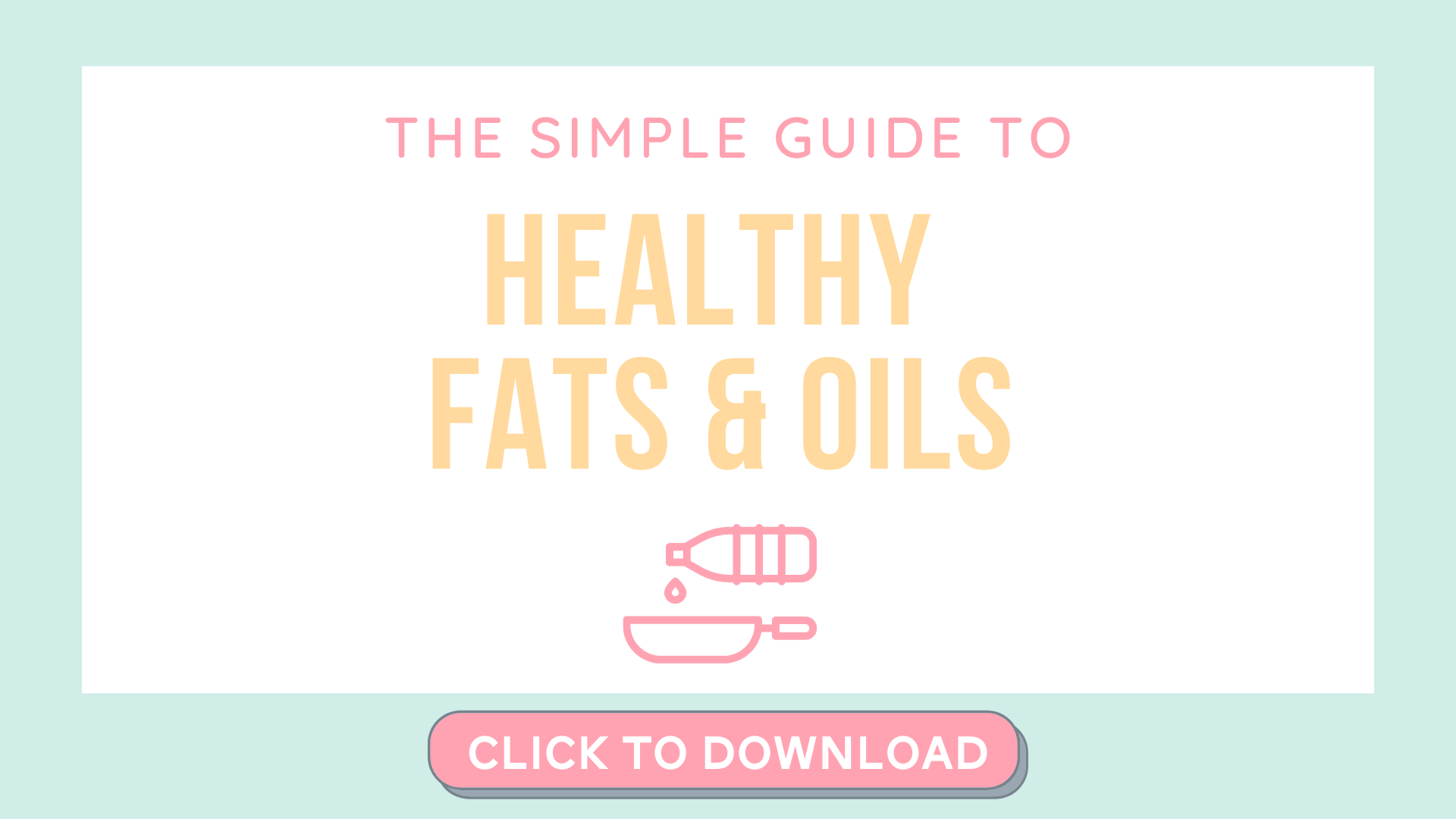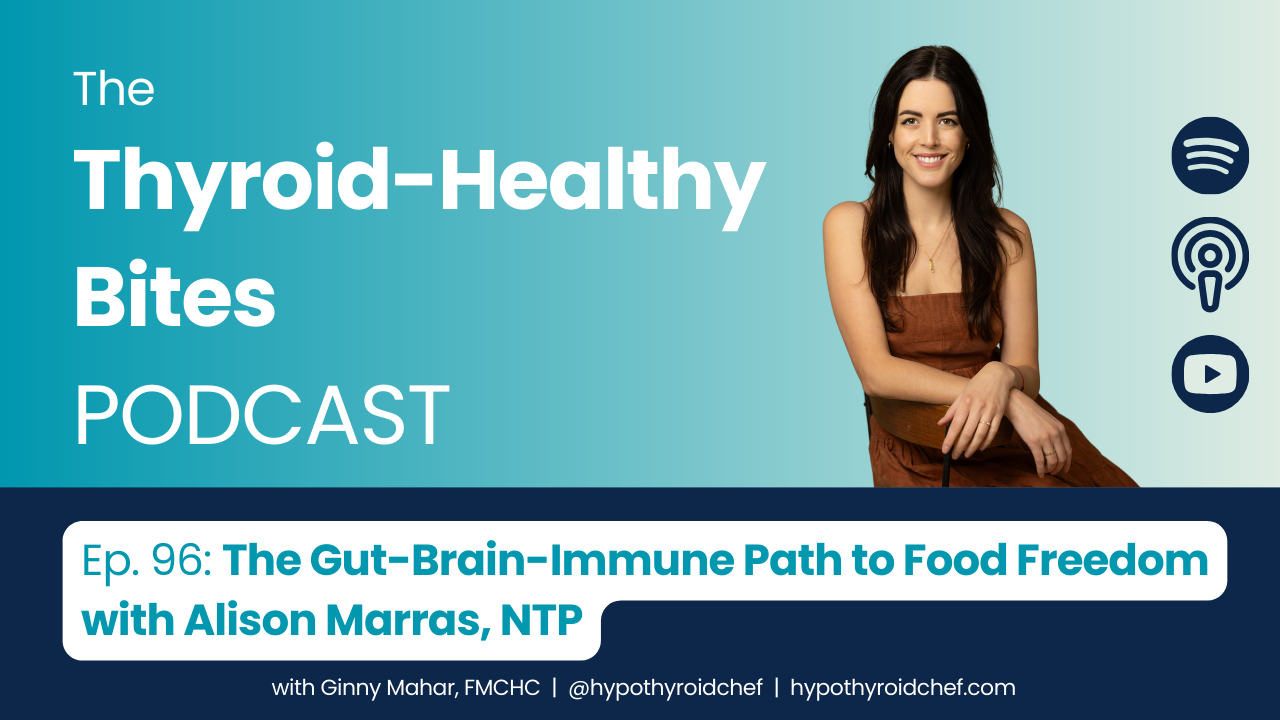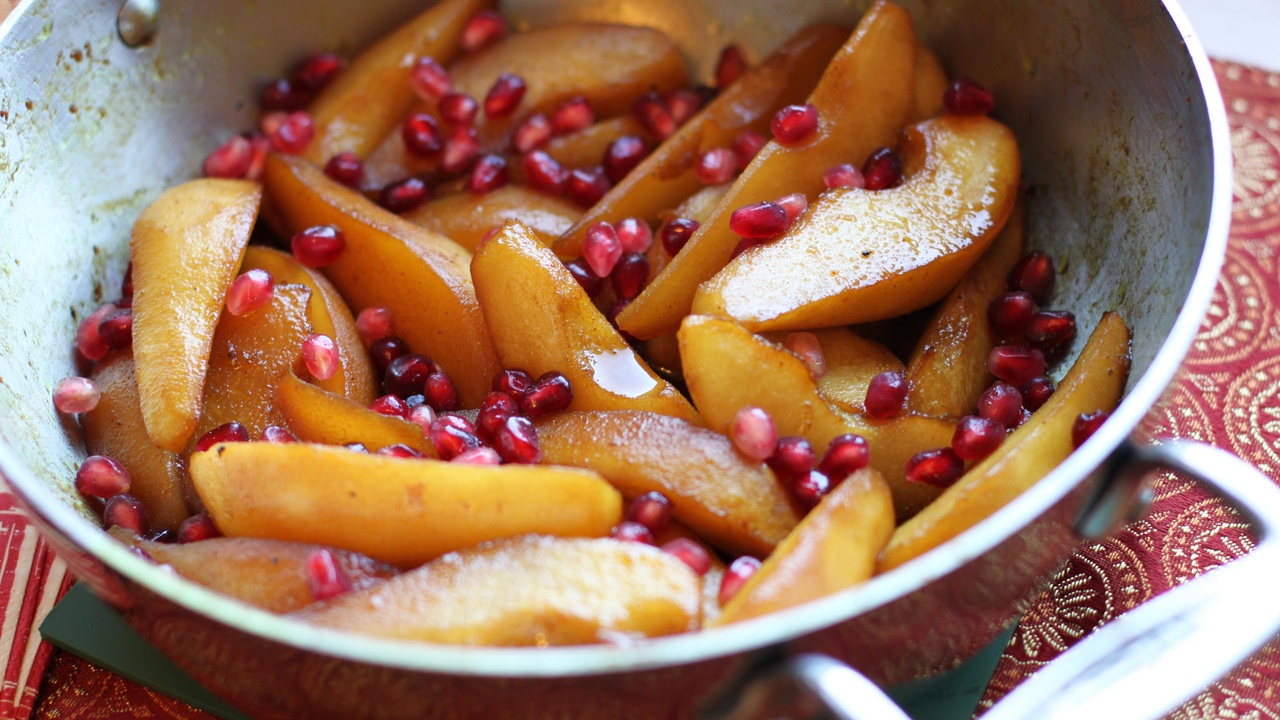Are White Potatoes Thyroid-healthy?
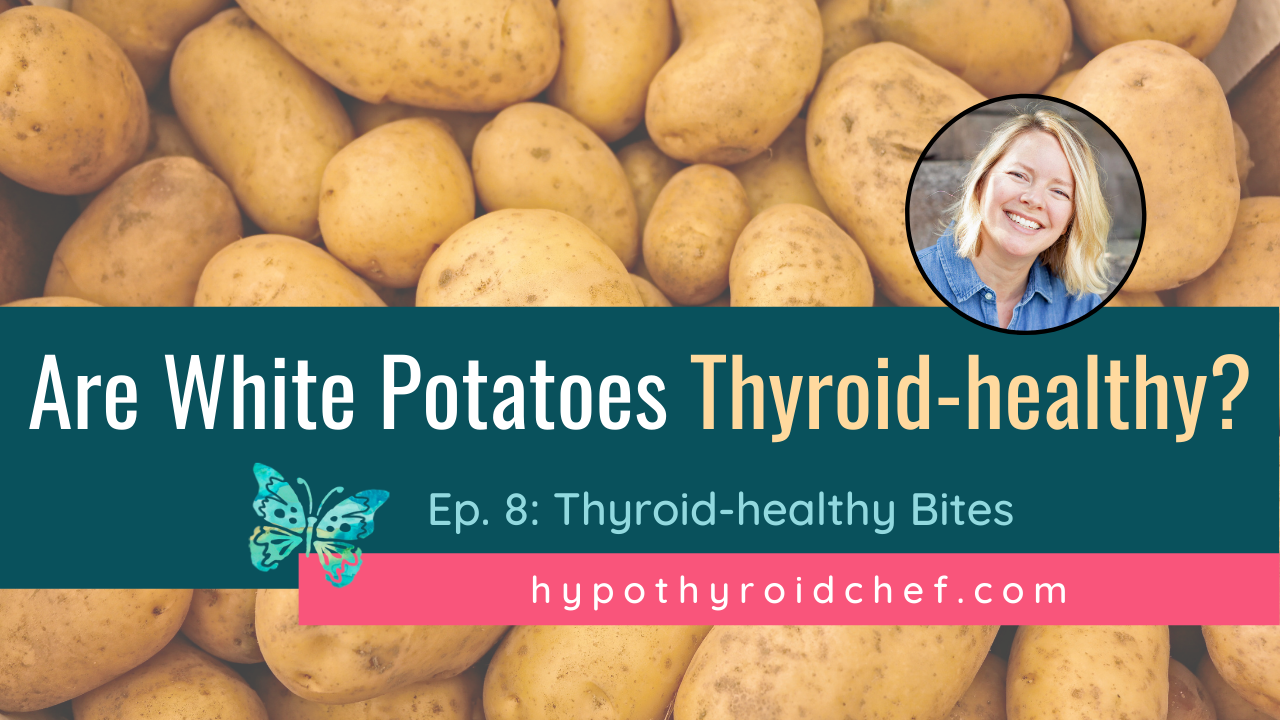
White potatoes can be one of those "gray-area" foods when it comes to a thyroid-healthy diet. Are they just more "starchy food" or "empty calories"? Are they going to send our blood sugar into the stratosphere? Are they mere standard-American plate filler, or do they actually have some nutritional heft?
Potatoes are like the Hooper Humperdink of common whole-food-based dietary templates like Whole30 and Paleo. They weren't invited to the party, but now they are. But then, true elimination diets like the Autoimmune Protocol (AIP), say white potatoes are a no-go.
Why is that? What's up with spuds, and should we be eating more, less, or none of them? These are the questions we're going to explore in this blog post and this episode of The Thyroid-healthy Bites Podcast.
Disclaimer: This information is for educational and inspirational purposes only. Always consult with your doctor or other qualified healthcare providers before making changes to your diet, health care, or exercise regimen.
Links from the Show:
- Free Download: The Thyroid Thrivers' Grocery Guide
- Free Download: The Simple Guide to Healthy Cooking Fats & Oils
- Thyroid-healthy Bites, Ep.5: What is Thyroid-healthy Eating?
- Browse my Thyroid-healthy Recipe Library
- The Ultimate GF/DF Mashed Potatoes & Gravy
- Potatoes: Friend or Foe of Paleo by Dr. Sarah Ballantyne
- Resistant Starch: It's not all sunshine and roses by Dr. Sarah Ballantyne
- Potatoes 101: Nutrition Facts and Health Effects (Healthline)
Podcast Links:
- Listen on the podcast page
- Subscribe on iTunes
- Follow on Spotify
- Subscribe on YouTube
- Subscribe on Google Podcasts
Why Potatoes Get a Bad Rap
Potatoes have gotten a bad rap in the diet world, but lately, the tides are a-turning for this highly nutritious tuber. In fact, JJ Virgin calls potatoes “Nature’s Diet Pill,” pointing to the fact that one potato has more potassium than a banana, and that the resistant type of starch they contain is a champion of good gut health.
For health experts like Virgin, the problem with potatoes isn’t the potatoes themselves, but all the junk we add to them, and the processes we put them through.
If you’ve checked out my Guide to Healthy Cooking Fats & Oils, you probably know that deep-frying—especially in restaurants where highly-inflammatory industrial oils are the norm—takes all the good out of these healthy tubers and turns them into something harmful. So, fries and chips are indeed, wise to avoid or at least, limit your consumption of. (I know, I know. I love them too.)
Are White Potatoes Good for Thyroid?
For Thyroid Thrivers, in general, the more nutrient-dense, the better. White potatoes, in their purest, most unadulterated form, are actually quite nutritious. In particular, potatoes feature several key thyroid-supporting nutrients like Vitamin C, B6, Potassium, Magnesium, Iron, and Iodine.
Nutrition in One Baked Potato:
- Calories: 161
- Fat: < 1 g
- Sodium: 17 mg
- Carbohydrates: 37 g
- Dietary fiber: 4 g
- Resistant starch: 6 g
- Protein: 4 g
- Vitamin C: 28% RDA
- Vitamin B6: 27% RDA
- Potassium: 26% RDA
- Manganese: 19% RDA
- Niacin: 12% RDA
- Magnesium: 12% RDA
- Phosphorus: 12% RDA
- Folate: 12% RDA
- Copper: 10% RDA
- Iron: 10% RDA
- Iodine: 40% DV
That's a LOT of nutrition!
Ultimately, the choice of whether or not to eat potatoes depends on you and your current dietary requirements, and intolerances. This can change over time depending on various health factors, including the health of your gut, your current stress levels, and other health issues you may have in addition to your thyroid issues.
Are potatoes right for YOU?
The answer, as with pretty much all foods, is, it depends. It depends on the factors listed above. It depends on you and your unique sensitivities to some of the problematic natural substances in potatoes (we'll get into that in just a sec). It ultimately depends on your current health situation, dietary requirements, and goals.
For example, if you are currently on a therapeutic eating protocol (like Paleo, AIP, or Whole30), it may exclude white potatoes. Many of us are using, or have used, these protocols to ditch symptoms, lower inflammation, heal the gut, and reduce thyroid antibodies.
Are potatoes allowed on your current diet? Let's start there, and then we'll look at the reasons why some of these diets recommend avoiding white potatoes.
Are Potatoes Allowed on Your Current Diet?
Potatoes are indeed making a comeback in the whole-food nutrition world, but some diets do, and some diets don't allow them.
Gluten-free: White potatoes are naturally gluten-free, so that's not a concern.
Low-carb/Keto: White potatoes are high in carbs. Some Thyroid Thrivers report that they feel better and are more able to maintain a healthy weight on a low-carb diet like 'healthy keto.' Their high carb content makes white potatoes restricted or allowable only in small amounts on these diets.
But what if you're utilizing an anti-inflammatory healing diet like Paleo, Whole30, or AIP? This is where things get a little tricky as opinions vary. In some cases, potatoes initially weren't allowed, but now, they are. What's the story?
Whole30: Originally, potatoes were not allowed on Whole30, but in 2014 they amended their rules to allow the white potato back onto their list of approved foods, citing their high nutrient density and echoing that it’s not the potatoes themselves but what we do to them and how much of them we eat that can get problematic.
Paleo: For those following a Paleo diet, white potatoes have had a similar storyline. They are not flat-out approved, but there is a hot debate going on that has many leaning toward allowing some white potatoes back onto Paleo plates.
AIP: For AIP eaters, be aware that potatoes are in the nightshade family, and should be avoided for anyone who has a nightshade intolerance, or who is on the strict elimination phase of AIP. Peeled potatoes are a Phase 3 AIP Reintroduction, and potatoes with skin are a Phase 4 reintroduction.
So, why are white potatoes such a gray area with these diets? Specifically, why can they be a problem for autoimmune thyroid patients (which is the vast majority of us)? Let's explore.
The Dark Side of White Potatoes
We've covered a lot of the bright side of white potatoes, so let's look at the not-so-bright side.
White potatoes are a member of the nightshade family of vegetables, along with tomatoes, eggplant, and peppers. These foods are healthy in many ways and are tolerated by many Thyroid Thrivers, so let's avoid putting foods into the bad or good pile, but let's talk about why they can be so problematic for some.
Nightshade vegetables contain natural toxins that can cause inflammation and contribute to intestinal permeability (commonly referred to as 'leaky gut'). The two primary toxins found in white potatoes are glycoalkaloids and saponins.
Keep in mind that many vegetables contain naturally occurring chemicals that can be mildly toxic to humans. Potatoes, tomatoes, yams, chickpeas, and garlic, for example, all contain saponins. These foods are otherwise very healthy and not problematic for most people. Their naturally occurring toxins play an important role as the plant's natural pesticide and fungicide, helping the plant grow and survive.
When can these naturally-occurring toxins become problematic? They can get problematic for humans when too much is consumed, or when an individual has a health condition that involves inflammation and/or leaky gut.
That does include quite a lot of us Thyroid Thrivers, especially when you consider that over 90% of us with hypothyroidism have autoimmunity.
Further Reading: Why You Should Get Tested for Hashimoto's
To put it simply, some of us are more sensitive to these toxins than others. Whether or not potatoes are problematic for you depends on your bio-individual sensitivity to nightshade toxins, how much you consume, and what your current health status is.
Those with arthritis, for example, may find that nightshade consumption leads to increased pain. Those of us with highly compromised gut health may be more sensitive to nightshades. The key is to pay attention to the feedback your body gives you from consuming these foods.
How Can I Figure Out if White Potatoes (and Other Nightshades) are Reactive for Me?
If you feel that nightshades or white potatoes specifically may be a problem for you, the dietary elimination/reintroduction approach is still considered the gold standard for identifying food sensitivities. (See note on food allergies below.)
The process is fairly simple but takes a little time. First, you remove the food from your diet for a minimum of 3 weeks (per the Institute for Functional Medicine's guidelines). During this elimination phase, you pay close attention to how you feel, carefully tracking and noting any changes.
Following this 'elimination phase' comes the 'reintroduction phase,' where you reintroduce that food, and see how your body responds. Again, it's important to pay close attention and track any symptoms. Reactions can take several days to occur, so it's best to reintroduce no more than one food at a time and give yourself 5 to 7 days to observe what happens. Reintroducing one food at a time enables you to isolate and identify exactly what food is causing which symptoms.
Did you experience bloating, gas, or other GI upset? How about joint pain, brain fog, or mood changes? There can be skin reactions, changes in energy, and a laundry list of other symptoms caused by food. It's not always as simple as a food upsetting your stomach. And it's not always as immediate as eating the food and then feeling a reaction right away. That's why slowing down, tuning in, and tracking your symptoms are key.
An elimination/reintroduction trial can be an incredibly eye-opening experiment, and can be used with any food you feel may be causing symptoms, including white potatoes or nightshade vegetables. I walk you through the entire process, and provide you with a food sensitivity tracker and guide as part of The Thyroid-healthy Meal Plan Kickstart.
Essentially, this process gives your body a chance to tell you whether potatoes are right for you or not.
This is exactly what the Autoimmune Protocol (AIP) Diet gives you the opportunity to do, and why potatoes and other nightshade vegetables are not allowed during the elimination phase. Reintroducing white potatoes (and other nightshades) is built into the 'Reintroduction Phase' of the AIP.
For some of us, the devil is in the dosage. A little bit may be tolerated just fine, while a lot can trigger a reaction. If this is the case for you, there are ways to avoid or reduce your exposure to the naturally occurring toxins in potatoes included in the list of tips below.
NOTE: The elimination/reintroduction trial is used to test food sensitivities and intolerances. It is NOT recommended for testing true food allergies, which can lead to life-threatening reactions. If you feel you have a food allergy, talk to your doctor.
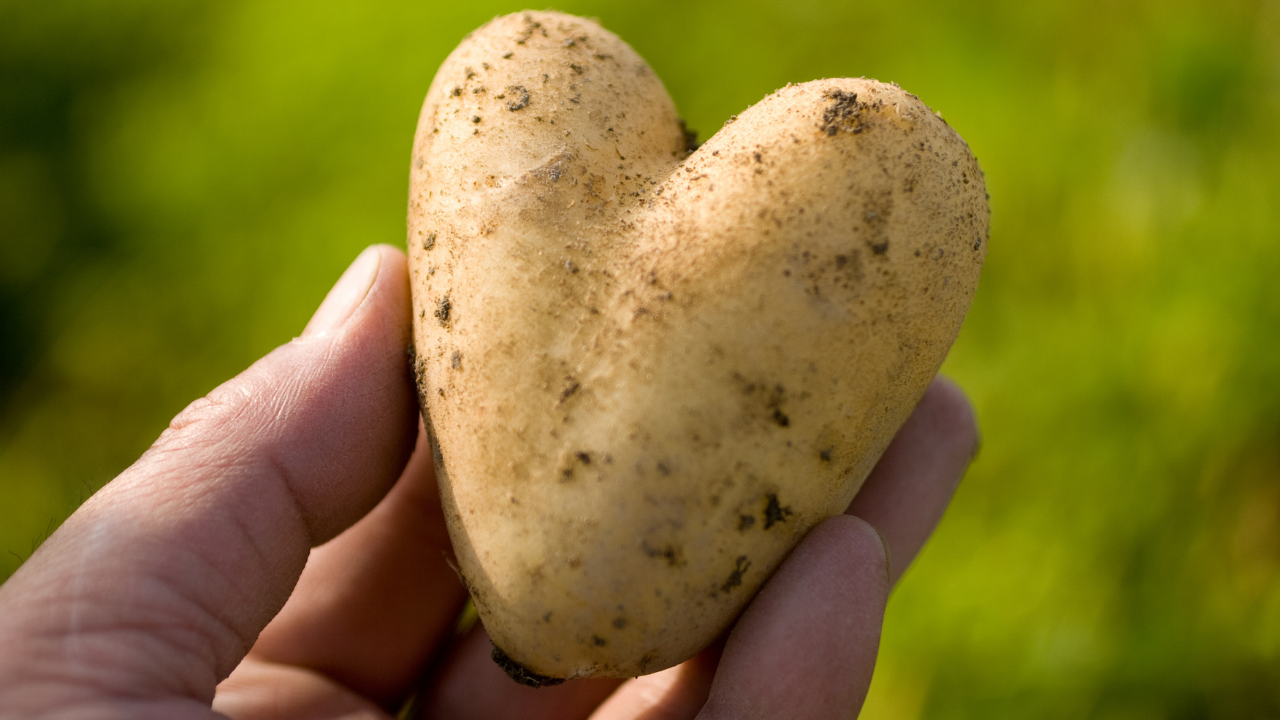
Tips for Minimizing Your Consumption of the Naturally Occurring Toxins Found in White Potatoes:
- When purchasing potatoes, always look for firm spuds without sprouts. If they're spongy, if they have a lot of sprouts, or if they have a green tinge, do not buy them (or throw them out if you already have them at home).
- Once you bring your potatoes home, store them in a cool, dry, and dark place.
- Storing white potatoes in the dark is key. Light exposure can increase their glycoalkaloid content (natural toxins found in potatoes).
- Another way to decrease the amount of naturally-occurring potato toxins you consume is to peel the potatoes. Keep in mind that this will also reduce the amount of vitamins, minerals, and fiber you get from the potatoes.
- If your potatoes develop small sprouts or small areas of green, it is considered safe to remove the sprouts, trim away the green parts, and consume the rest of the potato.
- If you eat potatoes, be mindful of how much and how often you're consuming them. Potatoes are ubiquitous, and it can be easy to overdo it on spuds, at the expense of more colorful and less starchy veggies.
Do White Potatoes Spike Blood Sugar?
There is some debate here. Potatoes do have a rather high glycemic index and glycemic load. These metrics are used to indicate the increase in blood sugar correlated to each food. A freshly baked potato is said to have a glycemic index of 111, and a glycemic load of 33. This is relatively high and sounds bad in terms of blood sugar, but there are some important caveats to remember.
First, the relevancy of the glycemic index has been called into question by nutrition experts. How our body responds to foods varies widely depending on our genes, as well as the context of the meal. What was the macronutrient balance? How was the food prepared? What was it served with?
This is especially pertinent with potatoes which have been somewhat vilified by the glycemic index. Several factors can bring the glycemic index of white potatoes way, way down:
- Cooling and storing the potato for a while before consuming it
- Preparing potatoes with some healthy fat
- Preparing potatoes with an acidic ingredient like vinegar
- Serving potatoes with protein
- The naturally-occurring resistant starch in the potato
Resistant Starch: One of the Best Things About White Potatoes
Resistant starch is one of the crowning nutritional benefits of white potatoes. Potatoes are a natural source of this highly-fermentable insoluble fiber. In fact, potato starch is used by some as a supplement for gut health-- a practice that is not recommended by the experts I follow. What is recommended is eating whole foods that contain resistant starch, like potatoes, root vegetables, and bananas.
Fiber, in general, is highly beneficial to our digestive and overall health. Resistant starch, which is a form of fiber, supports healthy gut flora, immunity, and blood sugar balance.
One of the unique things about resistant starch is that it can survive the gastrointestinal journey, all the way to our colon, and feeds our healthy gut flora in that part of the body. In addition, resistant starch can promote a healthy pH and lower inflammation in the colon. It also indirectly feeds the cells that line the colon. This may provide relief for digestive issues like IBS, Crohn's Disease, Ulcerative Colitis, diarrhea, and even constipation, which are common with hypothyroidism.
In Conclusion
As with many foods, whether or not white potatoes are right for your thyroid-healthy diet depends on you, and your personal needs, sensitivities, and circumstances. White potatoes are highly nutritious and contain several beneficial nutrients that Thyroid Thrivers can benefit from. They're an especially good source of gut-supportive resistant starch.
Some Thyroid Thrivers are intolerant to the naturally occurring toxins in white potatoes and other nightshade veggies. Others may be on temporary healing diets (like AIP) that don't allow white potatoes. For the rest of us who can tolerate white potatoes, we can feel good about incorporating them into a well-balanced and personalized thyroid-healthy diet.
I hope this article has helped you understand why white potatoes fall into a gray area for Thyroid Thrivers and has given you some tools to decide whether or not they are right for you. If you have questions or would like more help with this, book a free discovery call with me today!
Wishing you the best of health,

P.S. If you're anything like me, when I started down the path of thyroid-healthy eating I had questions-- lots of them. What I didn't have was a step-by-step system, to get me where I wanted to go. I wasted a lot of time piecing together bits of information about what to eat, what to avoid, and HOW to make thyroid-healthy dietary changes. That’s why I created the Thyroid-healthy Meal Plan Kickstart. Ready to harness the power of thyroid-healthy eating? This is for you! Learn more HERE.
Recipes Featuring White Potatoes:
Recipe Alternatives to White Potatoes:
- Olive Oil Mashed Cauliflower & White Sweet Potatoes
- Crispy Sweet Potato Rounds
- Salmon, Sweet Potato, and Watercress Salad
- Bacon & Chive Scalloped Sweet Potatoes
- Mashed Winter Squash - 3 Ways
- Chex Mix-Inspired Delicata Rings
Sources:
- https://www.thepaleomom.com/potatoes-friend-foe-paleo/
- https://www.thepaleomom.com/resistant-starch-its-not-all-sunshine-and-roses/
- https://www.healthline.com/nutrition/foods/potatoes
- https://www.doctoroz.com/episode/it-time-end-war-potatoes
- https://www.thekitchn.com/potatoes-are-now-whole30-approved-heres-why-239841
- https://paleoflourish.com/why-arent-potatoes-paleo/
- https://www.fsai.ie/faq/green_potatoes.html
- https://www.healthline.com/nutrition/resistant-starch-101#digestive-system
Subscribe to my free newsletter for fresh recipes & lifestyle tips, delivered weekly, and receive a free gift!
By submitting this form, you agree to receive ongoing updates from Hypothyroid Chef


